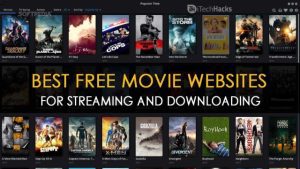
The way we consume entertainment has dramatically transformed over the past decade, placing an unparalleled variety of content at our fingertips. Online streaming has emerged as the backbone of this revolution, reshaping how we watch movies, TV shows, and even live events. Gone are the days of setting aside time to catch a program on television; now, audiences can enjoy their favorite content anytime and anywhere, creating a personalized viewing experience that caters to individual preferences.
Streaming services continue to evolve, offering everything from blockbuster films to niche documentaries. The abundance of choices can be both thrilling and overwhelming, empowering viewers to curate their own entertainment journeys. With this shift towards on-demand access, the future of entertainment is not only about what to watch but also about how and when we choose to engage with our favorite stories. As technology advances and platforms continue to innovate, online streaming is set to redefine the very essence of our entertainment experiences.
The Rise of Streaming Platforms
The landscape of entertainment has undergone a significant transformation with the advent of online streaming. Traditional broadcasting methods are increasingly being overshadowed by platforms that offer on-demand access to a vast array of content. From movies and television shows to live sports and music, these services have revolutionized how audiences consume media. As internet speeds have improved and smart devices have become ubiquitous, more people are turning to streaming as their primary source of entertainment.
Streaming platforms like Netflix, Hulu, and Amazon Prime Video have established themselves as household names, offering original programming and an extensive library of existing content. This personalized approach allows viewers to curate their experiences, selecting what they want to watch at any given moment. In addition, these platforms frequently introduce innovative features, such as binge-watching capabilities and personalized recommendations, enhancing user engagement and satisfaction.
Furthermore, the success of streaming platforms has prompted a flurry of competition in the market. New entrants like Disney+, Apple TV+, and HBO Max have emerged, each striving to carve out their own niche while appealing to diverse audiences. This competition not only drives the innovation of content but also contributes to the ever-expanding selection available to viewers. As a result, the future of entertainment is increasingly defined by the flexibility and accessibility offered by online streaming.
tv.youtube.com/start
Impact on Traditional Media
The rise of online streaming has significantly disrupted traditional media landscapes, altering how audiences consume content. Television and radio, once dominant sources of entertainment, now face challenges as viewers and listeners shift their preferences towards streaming platforms. This transition has led to a decline in traditional advertising revenues as brands allocate more funds to digital promotions, seeking to reach audiences where they are most engaged.
Moreover, streaming services have introduced a model of on-demand content that traditional media cannot easily replicate. Viewers no longer adhere to fixed broadcast schedules; instead, they are empowered to watch whatever they desire, whenever they wish. This flexibility has forced traditional media outlets to adapt, prompting some to explore online platforms or develop their own streaming services to retain their audience share and stay relevant in a rapidly evolving marketplace.
The competition for viewers’ attention has intensified, compelling traditional media to rethink programming strategies. Networks are investing in high-quality original content and live events in hopes of capturing the interest of audiences who might otherwise choose to stream. As a result, we are witnessing a transformation in content delivery and creation, where the boundaries between traditional media and streaming begin to blur, requiring perpetual innovation to survive in this new era of entertainment.
Future Trends in Streaming Technology
As online streaming continues to evolve, the integration of artificial intelligence is set to revolutionize user experience. AI algorithms will personalize content recommendations, making it easier for viewers to discover new shows and films tailored to their tastes. This level of personalization can lead to increased viewer engagement and retention, creating a more satisfying streaming experience.
Another trend on the horizon is the rise of interactive streaming. Platforms are exploring ways to make content more engaging through audience participation, where viewers can influence story outcomes or interact with characters. This shift not only grants a unique viewing experience but also fosters a sense of community among audiences as they share their choices and preferences in real-time.
Finally, the expansion of cloud gaming and streaming services will blur the lines between gaming and traditional media consumption. As internet speeds improve and latency decreases, streaming games will become more accessible, allowing users to play high-quality games instantly without the need for expensive hardware. This convergence of gaming and movie streaming services represents the future of entertainment, providing users with an array of options at their fingertips.
















